
Lance Cowan: Offering elevated songcraft common to the best of the New Traditionalist movement of yore
Built to Last
By David McGee
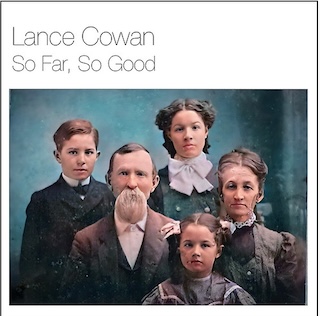 SO FAR, SO GOOD
SO FAR, SO GOOD
Lance Cowan
Lantzapalooze Müzik
Veteran Nashville publicist for the likes of Michael Martin Murphey, Nanci Griffith, Guy Clark and the individual Flatlanders, Lance Cowan, having honed his singer-songwriter skills, does nothing less than deliver, in his debut album, one of 2024’s big surprises. Echoes of Steve Goodman, John Prine (especially his first album, when he was little known outside of Chicago and stunned a generation with his vivid, lived-in—and often beautiful—dissections of a world rife with myriad disfunction and alienation among the populace young and old), and Murph, among others, surface in his literate, intimately detailed perspective, but mostly you’ll hear the elevated songcraft common to the best of the New Traditionalist movement of yore set in a soothing string-rich soundscape defined by acoustic guitars, mandolin, pedal steel and fiddle, all pristine as fresh waters.

‘Little Johnny Pierce,’ Lance Cowan, from So Far, So Good

‘Mr. Ben McGhee,’ Lance Cowan, from So Far, So Good
Cowan’s clear, appealing tenor is the voice of a close friend, gently speaking of “the spirit of tender hearts broken/the wish of a falling star/the thunder of a new generation” (“For You”) and telling poignant tales of characters both disillusioned (teenage “Little Johnny Pierce,” who freaked out strait-laced neighbors with his “Lennon glasses” and counterculture lifestyle, only to find, upon being drafted, that talk of “love and brotherhood” wasn’t a simple concept in real life) and worldly wise, namely 93-year-old lifelong farmer “Mr. Ben McGhee” nightly restoring his soul and burnishing his memories with music. And the binding ties of home and hearth beckon, always, underpinning almost every song; this, even though the album title, So Far, So Good, suggests the known unknown, the impermanence of life—the challenges ahead and how everything can change for ill or good in a beat. Which further suggests these tales are but part of a larger story, possibly to be continued. Even so, as is, this one will hit you where you live and linger there in memory for a long, long time, like boats against the current.
Consistently Captivating
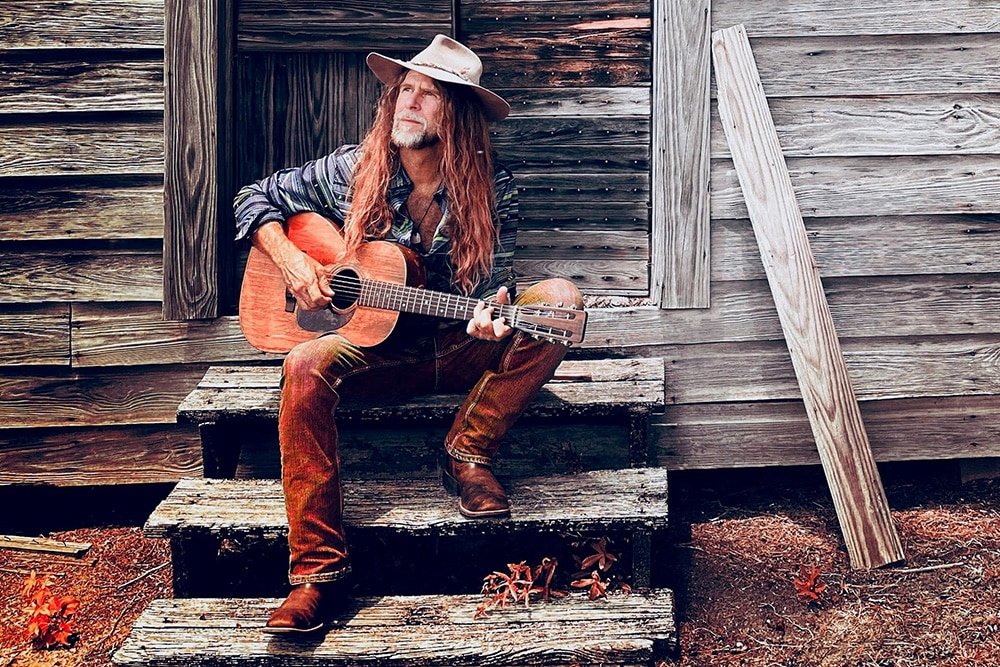
Grayson Capps: Deploying his earthy southern baritone at its most expressive best in service to 16 songs he learned during his childhood years, at his father’s knee. Photo: Chad Edwards/Royal Potato Family
By David McGee
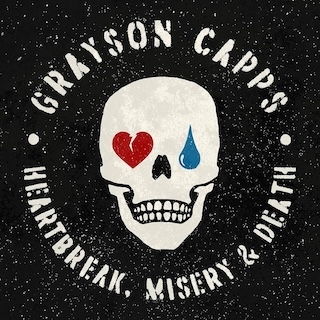 HEARTBREAK, MISERY & DEATH
HEARTBREAK, MISERY & DEATH
Grayson Capps
Royal Potato Family
By any standard, Alabama-based Grayson Capps is one of his generation’s first-tier singer-songwriters. So on this, one of the finest of his many fine albums, Capps offers no new original songs but rather deploys his earthy southern baritone at its most expressive best in service to 16 songs he learned during his childhood years, at his father’s knee, all of them critical to shaping his nascent musical sensibility and sensitivity. It should also be noted that with Heartbreak, Misery & Death, Capps shares with Connie Smith the award for 2024’s darkest album titles, hers being Love, Prison, Wisdom and Heartaches. Congratulations to all. These titles are misleading, however: whatever else the albums share, both can lift the spirits simply by dint of the artists’ full-throated commitment to their repertoire.

‘Hallelujah,’ Grayson Capps, from Heartbreak, Misery & Death

‘Moody River,’ Grayson Capps, from Heartbreak, Misery & Death
From the chilling a cappella rendition of Doc Watson’s “Wake Up Little Maggie” on through mesmerizing, minimalist arrangements (vocal, Capps’s tenderly fingerpicked acoustic guitar and his long-time musical compadre Corky Hughes’s atmospheric second voice on electric and bass guitars and “tiny piano”), Capps is consistently captivating. Consider the thoughtful probing of Leonard Cohen’s justly celebrated “Hallelujah” in a way that, with a big assist from Hughes’s gently weeping guitar, actually heightens its cry for spiritual redemption. Those readers now thinking they have heard enough “Hallelujah”s in their life might want to reconsider their position after hearing Capps’s measured, softly searing rendition. Whether it’s the haunting take on Doc Watson’s version of “Moody River” (yes, the Pat Boone teen tragedy hit from 1961); a buoyant rendering of Gordon Lightfoot’s “Early Morning Rain”; or a gentle, folk-flavored reading of Randy Sparks’s lovely ballad “Today,” surrender to the moment, and every breath you draw will be hallelujah.
Toning It Down
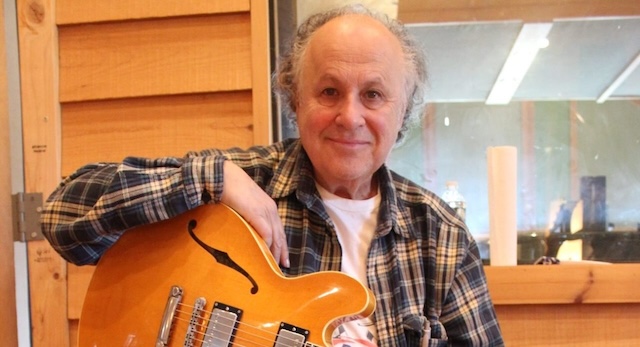
Arlen Roth: Putting new acoustic polish on well-worn tunes, with virtuosity and heart in perfect harmony.
By David McGee
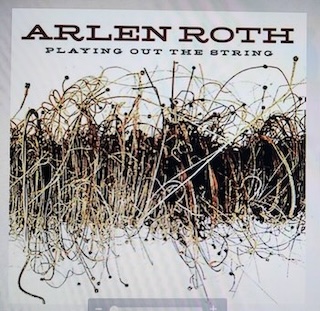 PLAYING OUT THE STRING
PLAYING OUT THE STRING
Arlen Roth
Aquinnah Records
Coming off his powerhouse summit with bass legend Jerry Jemmott (2013’s Super Soul Session), Arlen Roth, whose own legend spans acoustic and electric blues and pioneering efforts as a guitar and music educator, tones it down to a mostly solo acoustic session (his fifth such outing) on Playing Out the String, with his producer Alex Salzman periodically contributing keyboards. What a sound he realizes with only guitar and voice.

‘Walk Right In,” Arlen Roth, a casual version of the recorded version on Playing Out the String

Arlen Roth’s solo acoustic instrumental version of ‘Pancho and Lefty,’ featured on Playing Out the String
Check out the sonic depth Roth conjures from his 12-string on the cover of “Walk Right In,” on which he manages to mate the ebullient spirit of Gus Cannon’s banjo- and harmonica-driven 1929 original with the strut of the Rooftop Singers’ 1963 pop hit, while adding a conversational vocal quite reminiscent of Mr. Cannon’s own spirited reading. Eleven cuts are about evenly distributed between classic folk and blues tunes, with Roth dipping into the Norman Blake catalogue twice with the intricate fingerpicking of “Randall Collins” and a tender reading of “Church Street Blues.” Blind Blake’s “Diddy Wah Diddy” loses nothing in syncopated translation in Roth’s hands any more than Louis Jordan’s V-disc classic “You Can’t Get That No More” forfeits any of its dark WWII humor (noting that zoot-suited street gents “all lookin’ cute,” have been told by Uncle Sam “You got to work or you got to fight”, whereas “the glamour gals has stopped glamorizin’/they workin’ in defense pants, wearin’ slacks…joinin’ the WAVs and the SPARs and the WAAFs) in the Roth iteration. Elsewhere, ranging from Townes Van Zandt (“Pancho and Lefty”) to Nilsson to Allen Toussaint’s “Java,” Roth puts new acoustic polish on well-worn tunes, with virtuosity and heart in perfect harmony.



